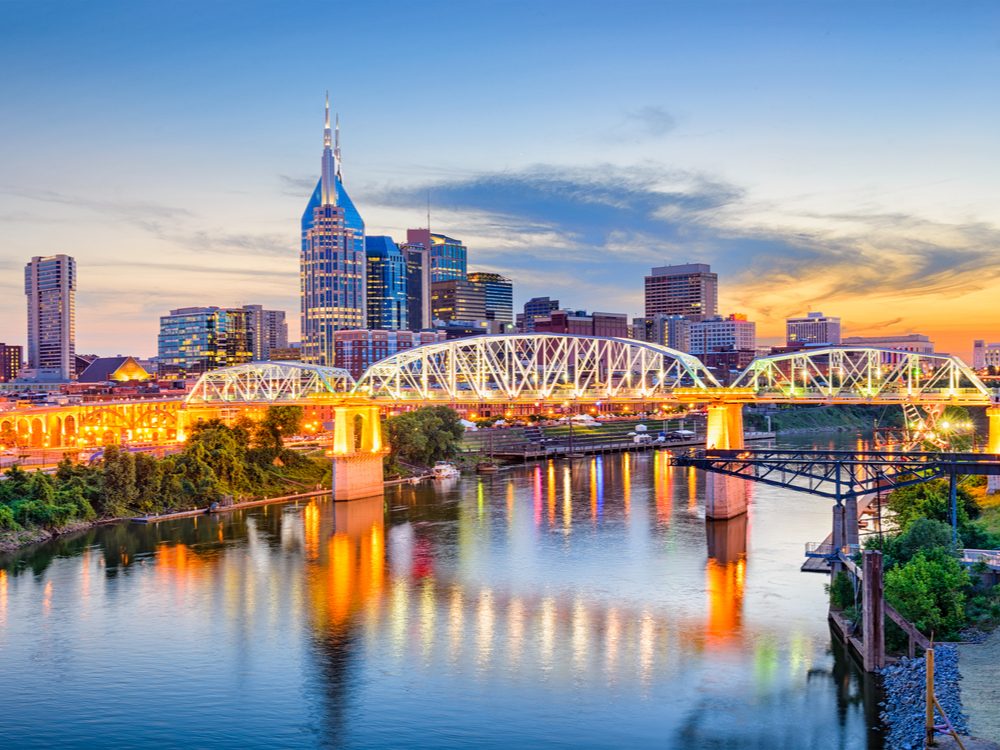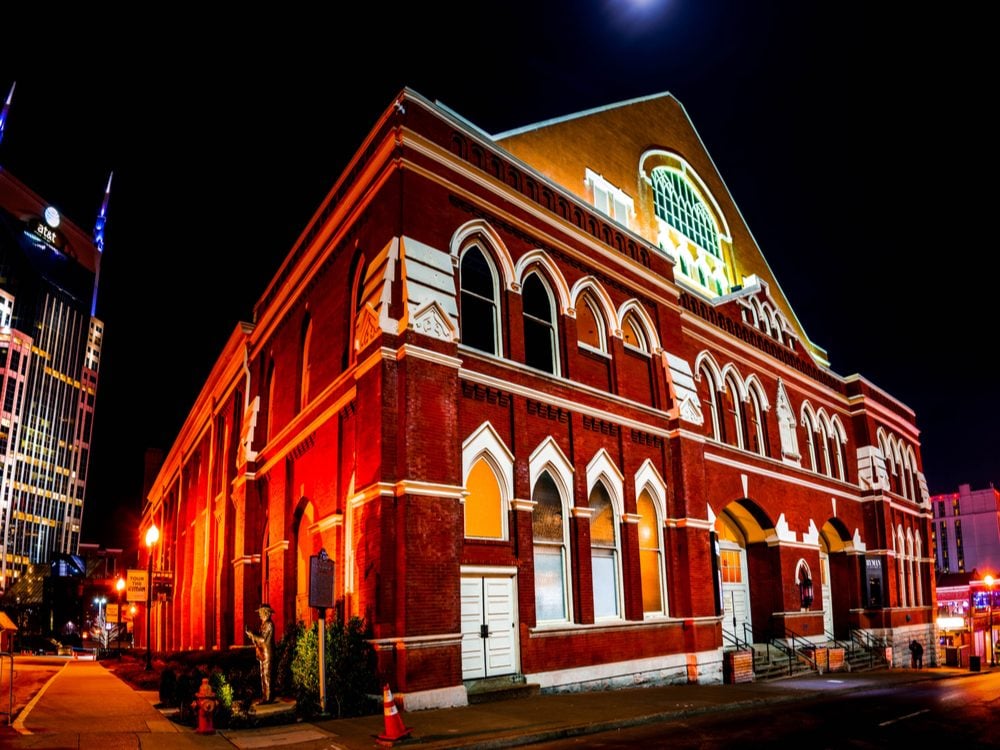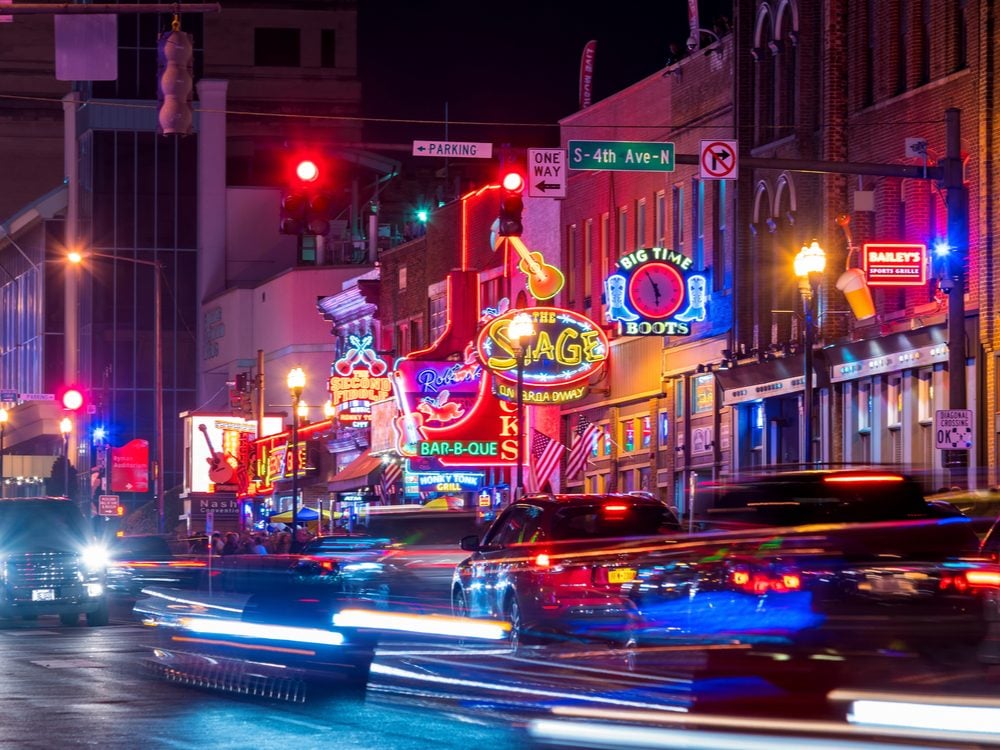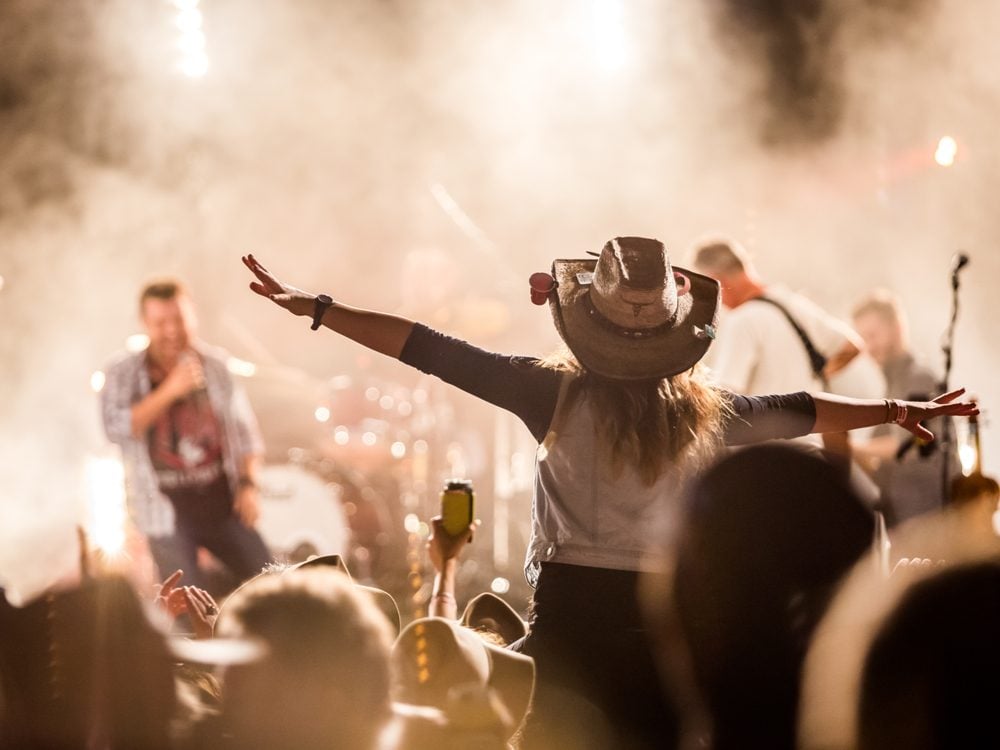
A City of Dreams
As my plane flies over the country music mecca of Nashville, I see a flurry of activity. Tennessee’s capitol has become something of a boom town lately. Scores of building cranes dot the downtown area, giving birth to over two billion dollars’ worth of shiny new skyscrapers and an ever-changing skyline.
Forbes magazine has called this city of 660,000 one of the nation’s “hottest” (as in trendy) cities, The New York Times has dubbed it the nation’s “It” city (as in very trendy), and GQ magazine labeled it “Nowville” (as in even trendier).
Long before it got those labels, though, Nashville was known around the world as “Music City,” and “The Home of Country Music.” Generations of legendary singer/songwriters, from Hank Williams to Johnny Cash to Willie Nelson to Taylor Swift, have gained both fame and fortune here. With all that’s going on, I’ve come here to see if the city is still in touch with its much vaunted musical roots.
As I land at Nashville International Airport, I recall the lyrics to “Crazy Town,” country singer Jason Aldean’s hit song about the city: It’s a crazy town, full of neon dreams. Everybody plays, everybody sings, Hollywood with a touch of twang. To be a star you gotta’ bang, bang, bang.
Do these lyrics, I wonder as my plane taxis to the gate, still apply to Nashville? Minutes after I step off the plane, I spot a country singer performing on one of the six stages that the airport has set up under its one-of-a-kind “Music in the Terminal” program to entertain travellers.
Can you guess which American cities have the most expensive hotels?

The Heart of Country Music
Joe West, the 58-year-old singer/ songwriter, is a six-days-a-week performer at the airport and is immensely popular. Harried travellers stop and listen to him and devoted local fans drive out to the airport to catch his performances.
After a moody Hank Williams classic, he sets down his much-loved, battered guitar and confesses to me that “Crazy Town” could have been written about him. He’s been in Nashville writing songs, singing, peddling his CD’s, and “bang-banging” on this guitar for the last 20 years. When I tell him I have come to Nashville to discover if it’s still the heart of country music, he smiles. “Definitely! That’s why I came here. And I’m thrilled to be living my dream of performing and making a living with my music here.”
A passerby drops a five-dollar bill in his tip jar as West explains, “Nashville has been growing by leaps and bounds, but music is in this town’s DNA.” He suggests I visit the Ryman Auditorium, adding, “It will never change.”
Check out these amazing hotels for music lovers.

A Real Legend
I’m in luck. Larry Gatlin, one of Nashville’s Grammy-award winning singer/songwriters, has agreed to give me a behind-the-scenes tour of the 127-year-old Ryman, Nashville’s most famous music venue. The one-time church is best known as the longtime home of the Grand Ole Opry country music radio show. Gatlin, an acclaimed solo artist and member of the trio the Gatlin Brothers, meets me in the lobby. If the Ryman is the “Mother Church of Country Music,” as it’s often called, then Gatlin is one of its most famous high priests. His hit songs include “All The Gold in California,” “Broken Lady,” and “Houston,” and he still performs with his brothers across the country. He has a guitar slung behind his back and, but for his grey hair, looks at least a decade younger than his 71 years.
As we sit in the historic theatre’s upper balcony watching electricians rig the stage for an upcoming performance, Gatlin tells me, “You know ‘holy’ is a good word to describe the Ryman.” He gestures to the stage some 50 feet away and adds, “When you think of the stars who have performed on that stage, from Elvis Presley to Patsy Cline and Johnny Cash, there’s no other word for it.” Even rockers such as Neil Young described the Ryman as “like country music heaven.”
Gaitlin, who still performs at the Ryman, remembers the first time he visited it, in July 1971. “I’d just moved to Nashville, hoping to make it as a singer/songwriter. I’ll never forget watching Dolly Parton and Roy Acuff perform onstage. It still gives me chills thinking about it.”
He says he was thrilled when it was saved from the demolition squad in the 1990s and recently renovated. “The fact that the Ryman has been saved proves how much this town cares about its musical roots.”
During our discussion, curious fans have begun snapping pictures of Gatlin and the braver ones have approached closer, possibly gathering up the courage to ask for an autograph. He smiles and acknowledges them but tells me he wants to play a song for me that he has been working on. “I just started writing it, but I think it will help answer your question about how important it is that we preserve the Ryman’s and Nashville’s role in country music.”
He picks up his guitar, tunes it and begins singing softly: “She’s the Ryman, mother church of country music. For almost a hundred years, stars of country music have made her rafters ring. If her old walls could talk, they’d sing.”
The tourists who have gathered around us seem as moved as I am by this impromptu Nashville musical moment. Gatlin sets down his guitar to warm applause. This mini-performance from one of country music’s brightest lights reminds me of what one writer noted about the Ryman: “At the Ryman, anything is possible: A soul can find redemption, a crumbling building can find salvation, and unknown kids with guitars can find their name in lights.”
Love country music? Find out what your taste in music says about your personality.

Hitting the Town
A quick walk around the corner from the Ryman brings me to perhaps the most famous, some may say infamous, neighbourhood in Nashville, known as Lower Broadway. Home to a dozen or so neon-heavy bars known as honkytonks, this is ground zero for tourists and locals in search of cheap drinks, wild dancing, and live country, western, and bluegrass music. Happily, it’s also a magnet for up-and-coming talent: musicians, singers, and songwriters who have come to Nashville to make their musical dreams come true. Even more happily; there’s no cover charge, food is inexpensive, and no reservations are needed—or accepted.
I duck into Tootsies Orchid Lounge, one of the street’s most popular honkytonks, and head for an upper floor, dodging a phalanx of hard-drinking bachelorette partiers who sport cowboy boots, cut-off shorts and T-shirtswith slogans like, “Smashed in Nash,” “My Last Ride Before I’m The Bride,” and “He Popped the Question.” The music is high decibel, professional calibre, and much appreciated. Even the bar’s advertisements are rowdy: “Come to Tootsies for a holler and a swaller.” (A shout and a drink.)
I order a beer and imagine what it must have been like between 1960-1974 when performers at the nearby Grand Ole Opry used to duck out the Ryman’s backstage door between shows, cross the alley (34 steps) to down a few beers here. Both Tootsies and its near-neighbour on Lower Broadway, Robert’s Western World, are two of the hottest venues in Nashville for showcasing would-be country music stars. When I walk into jam-packed Robert’s Western World, I’m reminded of what Grammy Award-winning songwriter Tim Nichols, once told me, “Nashville is the place to be if you want to make a name for yourself in this business. After all, if you want to hunt tigers, you have to go where the tigers are.”
I’ve also been told that many, if not most, of the bartenders and other employees in Lower Broadway’s honkytonks are country music hopefuls supporting themselves while they hone their craft. When I ask Roberts’ barmaid Theresa Bradford if any of the staff are also aspiring musicians, she laughs and tells me, “You’ve just described 90 per cent of our employees.” She introduces me to Matt Campbell, who explains he came to Nashville, “lured by the beacon of country music” five years ago and landed a job working as a beer stockman—a “schlepper”—at Robert’s. “It’s a great place to make connections and, if you’re lucky, make music,” he says.
Campbell, a multi-talented singer/ songwriter, performs regularly at Robert’s and on tour across the country. Among his tunes is “The Night That I Found Jesus Down at Robert’s Western World.” Before Campbell joins his band for their gig on Robert’s Western World’s main stage, he echoes what Tim Nichols told me. “If you have something to say, you need to take it to the marketplace,” he says as he slings his guitar behind his back. “And there’s still no bigger country music marketplace than Nashville.”
“You’ve come to Nashville at an interesting time,” says Mayor David Briley as I join him for a coffee at the ultra-hip downtown hotel, the Noelle. Briley is a grandson of the town’s first mayor. “We’re growing quickly, evolving, becoming more multicultural. But at the same time we’re concerned to preserve what has made Nashville so special—that unique spirit that attracts 14 million visitors from all over the world each year. And music is a huge part of that.”
Don’t miss these summer vacations everyone should take before they’re 50.

The Essence of Country Music
Music superstar Waylon Jennings might as well have been describing Nashville itself when he said, “Country music isn’t a guitar, it isn’t a banjo, it isn’t a melody, it isn’t a lyric. It’s a feeling.”
Signs abound that Nashville still reveres its past. Music-related museums are everywhere. Highlights include the 350,000-square-foot Country Music Hall of Fame and Museum, the much more modest Johnny Cash Museum, the Pasty Cline Museum, RCA Studio B, and the Musicians Hall of Fame & Museum. Exhibits range from the spectacular, Elvis’s “Solid Gold” 1960 Cadillac, to the less than spectacular: a group of stuffed squirrels that had been shot by Hank Williams.
In the Ernest Tubb record shop, started in 1947 by Tubb, one of the Grand Ole Opry’s brightest stars, I meet manager Victor Black, a one-man walking encyclopedia of country music. He shows me the highlights among the store’s treasure trove of memorabilia, hard-to-find CDs, and the hundreds of historic vinyl records and photos that line the walls.
I also explore the oldest and most famous music studio in Music City, RCA Studio B, where many famous singers recorded hits. On an early visit to the studio, Dolly Parton smashed her car into the side of the building and later quipped, “That was my first big hit.” Elvis fans take note: visitors can sit at the same piano where he recorded some of his hits.
At the end of my visit to Nashville, I feel confident that the city’s musical legacy is in good hands. The skyline may be changing, parts of the city are gentrifying, new restaurants are competing for trendiest, but at its heart, Nashville is still “Music City, USA.” Happily, it’s a town where cowboy boots, jeans, and guitar cases outnumber high heels, suits, and briefcases and is, as Jason Aldean noted, “a crazy town, full of neon dreams,” where “everybody plays, everybody sings.”
Next, check out the best things to do in Chicago on a two-day layover.